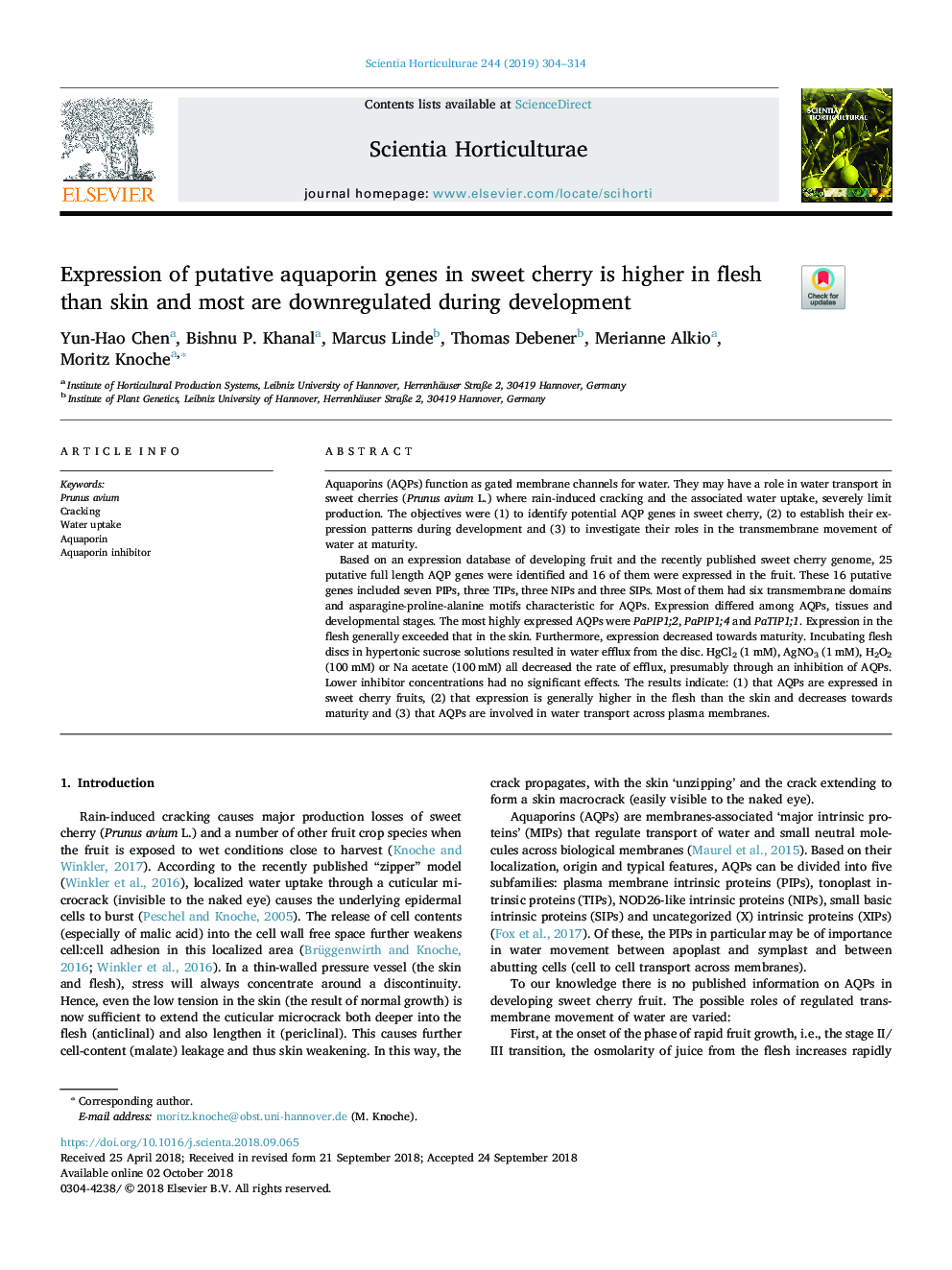| Article ID | Journal | Published Year | Pages | File Type |
|---|---|---|---|---|
| 11024823 | Scientia Horticulturae | 2019 | 11 Pages |
Abstract
Based on an expression database of developing fruit and the recently published sweet cherry genome, 25 putative full length AQP genes were identified and 16 of them were expressed in the fruit. These 16 putative genes included seven PIPs, three TIPs, three NIPs and three SIPs. Most of them had six transmembrane domains and asparagine-proline-alanine motifs characteristic for AQPs. Expression differed among AQPs, tissues and developmental stages. The most highly expressed AQPs were PaPIP1;2, PaPIP1;4 and PaTIP1;1. Expression in the flesh generally exceeded that in the skin. Furthermore, expression decreased towards maturity. Incubating flesh discs in hypertonic sucrose solutions resulted in water efflux from the disc. HgCl2 (1âmM), AgNO3 (1âmM), H2O2 (100âmM) or Na acetate (100âmM) all decreased the rate of efflux, presumably through an inhibition of AQPs. Lower inhibitor concentrations had no significant effects. The results indicate: (1) that AQPs are expressed in sweet cherry fruits, (2) that expression is generally higher in the flesh than the skin and decreases towards maturity and (3) that AQPs are involved in water transport across plasma membranes.
Related Topics
Life Sciences
Agricultural and Biological Sciences
Horticulture
Authors
Yun-Hao Chen, Bishnu P. Khanal, Marcus Linde, Thomas Debener, Merianne Alkio, Moritz Knoche,
